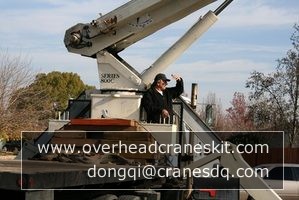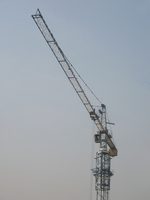Some states require certification and/or licensing to operate a crane, while others such as Virginia have yet to enact such regulation. Setting aside the regulation, gaining crane-operator certification form the National Commission for the Certification of Crane Operators (NCCCO), located in Fairfax, Va., can boost employers’ confidence levels when making hiring decisions. Certification helps employers ascertain your knowledge and expertise in operating a crane system, as well as gauge your commitment to safety on the job.
Tagged: crane operators
Construction and manufacturing companies commonly use overhead cranes in their operations to transport materials. While useful, they also introduce potentially grave dangers. Each year, overhead crane accidents cause severe injuries or deaths. To prevent disasters, recognize specific hazards that occur during use and follow the safety guidelines and procedures to avoid them.
Cranes trucks have a myriad of uses from moving heavy objects to loading supply ships and hoisting equipment. That is why safe operation of these vehicles is critical. Operators must learn to use crane trucks properly and safely so costly accidents and serious injuries can be averted. Read on to learn more.
Crane operators are required to be certified by a third party training agency or a qualified trainer through their employer, according to the National Commission for the Certification of Crane Operators (NCCCO). This certification is required under a ruling from the Occupational Safety and Health Administration (OSHA) that took effect on November 8, 2010. These certification requirements are for operators of mobile, tower, overhead and articulating cranes.
Crane operators require certification across North America. Quebec has only one crane operator training school: Atelier-ecole Les Cedres, which offers training only in French. There are other schools nearby, in Nova Scotia and Ontario, that offer training in English. Always check that the certification you are receiving will be accepted in the jurisdiction where you intend to work.
According to the Associated General Contractors of America, there are an average of 22 deaths each year related to crane operation. In response to this statistic, in August, 2010, the Occupational Safety and Health Administration adopted regulations that all overhead crane operators be qualified and certified. Section 1926.1427 of the U.S. Department of Labor (Federal Register), Cranes and Derricks in Construction Final Rule outlines the requirements for training to receive either certification or qualification.
Crane operators are most visible at demolition and construction sites, though many find employment in a variety of related industries. In addition to being in good physical condition, the ability to multitask is key in operating a crane, as an operator must be able to maneuver several controls simultaneously while accurately judging spaces.
A crane operator is a construction professional. After participating in a formal apprenticeship program and, in some states, obtaining licensing, these professionals operate, inspect and maintain cranes at construction sites and in other industrial environments.
Currently crane operators are qualified in many states by a simple set of standards, but the dangers in crane operations have caused OSHA to propose new testing methods. Although a license is required in 18 states already, within four years, all states will be required to adhere to the license regulations. The states in which a license is now required are: California, Connecticut, Hawaii, Maryland, Massachusetts, Minnesota, Montana, Nevada, New Jersey, New Mexico, New York, North Carolina, Oregon, Pennsylvania, Rhode Island, Utah, Washington and West Virginia.










